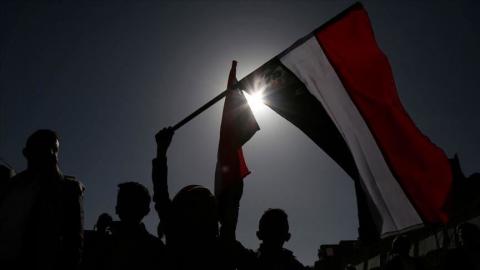Yemen Humanitarian Update Issue 8 (August 2020)


HIGHLIGHTS
Torrential rains cause devastation across Yemen for the third time this year
P 02
COVID-19 response to be pivoted
P 03
Fuel crisis seriously holds back the humanitarian response in northern governorate
P 04
Stranded migrants in Yemen in desperate need of humanitarian assistance
P 06
Locust infestations threaten to exacerbate food insecurity in Yemen
P 07
Security Council warned that the acute funding shortage is leading to deeper cuts to the aid operation and deadly consequences for the Yemeni population
On 18 August, Assistant Secretary-General for Humanitarian Affairs and Deputy Emergency Relief Coordinator, Mr. Ramesh Rajasingham, warned Security Council members of the devastating effects that the shortage of humanitarian funding is having on the aid operation in Yemen. As he briefed the Security Council, the Humanitarian Response Plan (HRP) was 21 per cent funded, only 3 per cent up on the previous month, the lowest figure ever seen in Yemen so late in the year. “We cannot over-emphasize the severe impact the resulting cuts are having,” said Mr. Rajasingham. “It is very difficult to explain the rationale for these cuts to families who, as you heard last month, are staring down a possible famine or losing loved ones to COVID-19.”
By the end of August, the figure had inched up, and the HRP was 24 per cent funded, leaving the humanitarian response still woefully underfunded with US$811.5 million received of the $3.38 billion required. The Deputy Emergency Relief Coordinator recapped on some of the worst cuts to the operation to date – partners unable to pay allowances to frontline health works or cover basic operational costs for health facilities in the middle of a pandemic; the closure of health facilities caring for 1.8 million people; and reduced food aid for 8 million people while famine is stalking the country. But worse is to come. Mr. Rajasingham highlighted that by the end of August, without further funding, water and sanitation programmes would be reduced by 50 per cent in 15 cities; in September support will stop to almost 400 more health facilities, cutting off 9 million people from medical care; and treatment for over a quarter of a million severely malnourished children will stop – children who will die without assistance.
Even pledges made at the funding conference at the start of June remain unpaid – only about half of the $1.35 million pledged has been received. The Deputy Emergency Relief Coordinator urged donors – particularly Yemen’s neighbours in the Gulf – to pay their pledges, and called on those who did not pledge, or pledged less than last year, to increase their support.

Aden — Yemen Airways has announced new updates to its ticket cancellation (VOID) policy, introducing financial penalties on travel agents in…

Geneva – The United States announced that Yemen will not be among the countries benefiting from a new $2 billion funding pledge for United Na…

Paris — The French humanitarian organization Acted announced that it has delivered cash assistance to nearly 89,000 people affected by displa…